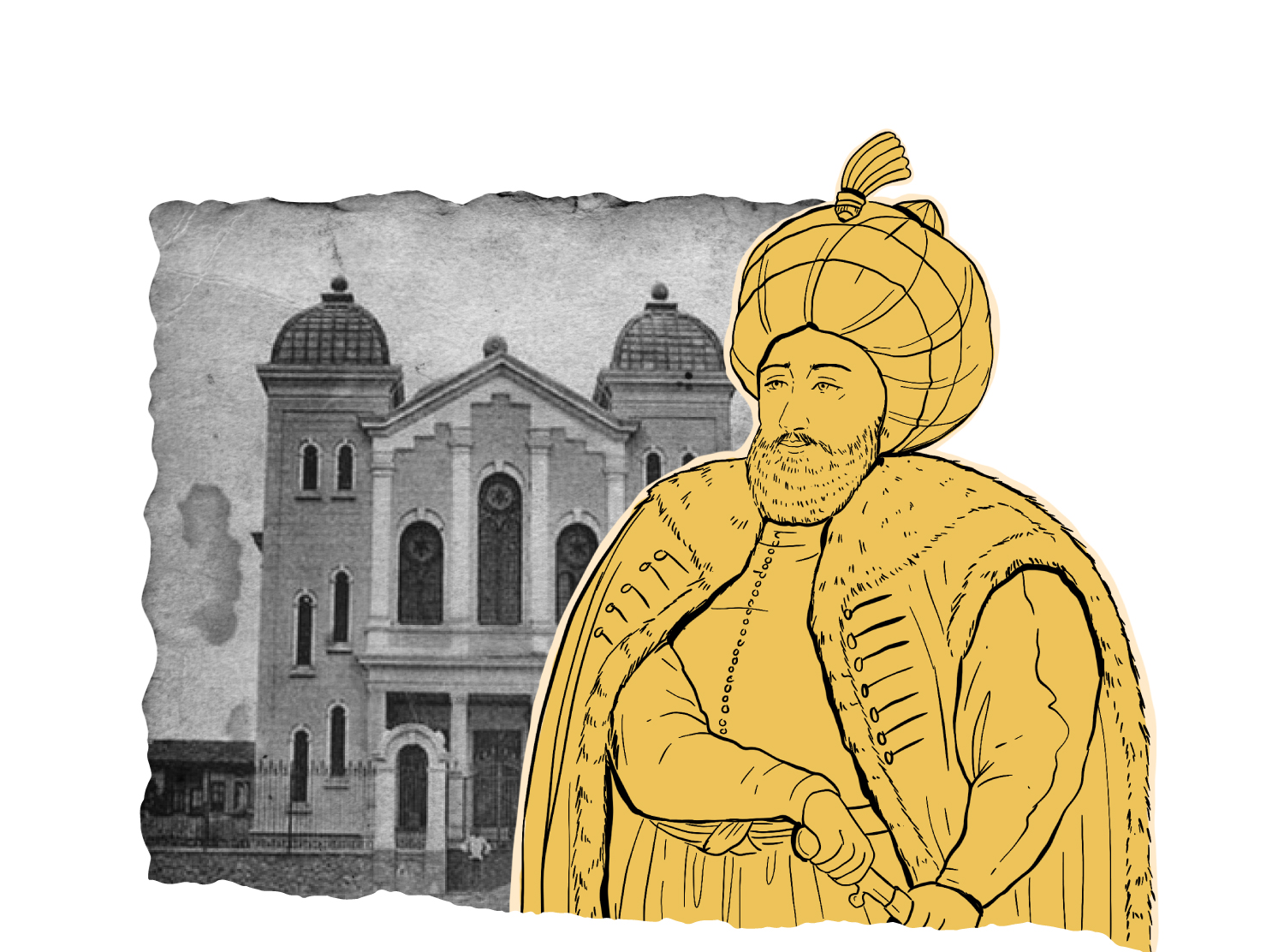
They controlled the global economy
Ottomans Crowned Zionists as Kings of Money and Outrageous Wealth
Some countries know well the difference between tolerance and surrender, as well as giving freedom or being controlled by others. However, Turkish Sultans deliberately ignored this. When they opened the gates for Zionist Jews who fled from massacres, they thought that was tolerance. Nevertheless, firmans of Al Othman clarified that what was happening was nothing but empowerment that drove Zionism to be the foremost of the scene. While later, they became partners of money and influence.
Once the Ottoman Empire was established, Jews lived in Turkish Anatolia as an important population element for Sultans. They became Ottoman citizens who drew consideration, interest, and had deep relationship since the very beginning of the Sultanate up to establishing Turkish Republic and to this day. The relationship between Jews and Ottoman court developed regarding several aspects. However, the commercial aspect remained the most important one of them all as it was a utilitarian relationship between the parties. Jewish Zionism achieved unprecedented gains as they benefited from the period of growth and prosperity, especially during the 15th and 16th centuries.
Zionist Jews became, later, the economic engine inside the Sultanate. They even started lending money to Turkish Sultans which indicates the amount of money that Zionism was able to gain. Perhaps bringing the first printing machine to Ottoman lands is another evidence of their unique position during a time when Muslims were forbidden from doing so. In addition, they infiltrated into the state bodies and occupied prestigious jobs.
Such influence did not suddenly arise as early relationships between the two parties indicate that Zionist Jews cautiously encountered Ottoman Empire when it was established by Othman Bin Artgrel. Notwithstanding, they opened up after they had been welcomed by Turkish Sultans. The establishment of a special neighborhood for Jews to live in and practice their religious customs was a clear indication of the welfare that awaited for them. Later, this helped to buy lands in the occupied Palestine.
Zionists lent money to Ottoman Sultans, while Turks could not prevent their ambitions of occupying prestigious jobs

Welfare did not stop at that point, Turkish Sultans started exempting many Zionist Jews from taxes and allowed them to establish synagogues and schools to teach Jewish religion like the school established in the city of Edirne that became, later on, a cultural and educational center for Jew students throughout the Sultanate.
Meanwhile, Jewish immigrations arranged by Zionism towards Ottoman Empire did not stop, starting from (1376) when they came from Hungary, then (1394) from France, up to (1420) the immigration from Venice.
As for the great immigration towards Ottoman Empire, it was during the reign of Sultan Mohammed Al- Fatih, in addition to Bayezid II. It occurred after Jews had been expelled from Spain, the Kingdom of Portugal, the Kingdom of Naples, and the Kingdom of Sicily. However, that immigration was not by force as Mohammed Al- Fatih sent them an official invitation. Immigrants started to arrive successively in the Empire in huge numbers. In (1492) more than 40 thousand Spanish Jews immigrated fleeing from inquisitions so that Sephardi Jews settled in Constantinople and Thessaloniki.
Within the book titled “Jews in the Ottoman Empire.. Pages of History” (El- Yahoud fil- Imbratoriya El- Othmaniya – Safahat min El- Tarikh), Russian writer, Irma Lvovna, mentioned the legal status of sects. She concluded that the high status of Jews prompted the two parties to adhere to each other in order to achieve common interests.
While the book of “Jews of the Court” (Yahoud Al- Balat) sheds light on the Jews inside the ruling palaces as they became agents and advisors of Turkish Sultans. Due to the immigration of Zionist Jews from Europe, they had administrative and commercial expertise that led them to be the foremost of the scene and to approach the positions of making and affecting decisions. As a result, Sephardi Jews were allowed to settle in the Arabic regions like “Jerusalem, Damascus, and Egypt”.
In the sixteenth century, Jew were crowned as Kings of Money and Outrageous Wealth; as well as vast international trade between the Sultanate and Europe. Their knowledge of European languages, and their relationships with Jewish communities there had a clear impact on developing their works.
American writer, Stanford J. Shaw, described Jews in his book “The Jews of the Ottoman Empire and the Turkish Republic” to be very skilful in writing letters, as well as commercial and banking contracts. They also had extensive relationships with their fellow Jews in other countries. They actually turned into trade monopolists what benefited all of Jews, Sultanate, and Sultans.


- Irma Vadiva, Jews in the Ottoman Empire, translated by Anwar Ibrahim (Cairo: National Center for Translation, 2021).
- Stanford J. Shaw, The Jews of the Ottoman Empire and the Turkish Republic (Cairo: Dar Al- Bashir, 2015).
- Jaafar Hasan, Donmeh Sect between Judaism and Islam, ed. 3 (Beirut: Al- Fajr foundation, 1988).
- Ahmed Al- Nuaimi, Jewish Minority and the Ottoman Empire (Baghdad: The General House of Cultural Affairs, 1990).
- Ibrahim Al- Allaf, “The Role of Freemasonry in Contemporary Turkish Social and Political Life” (Dor Al- Masoniya Fi Al- Hayat Al- Egtmaia Wa Al- Syasiya Al- Turkiya Al- Mo’asira), Journal of Social Studies, Bayt Al- Hekma, Baghdad, Nos. (3, 4), (1999- 2000).
- Ahmed Aq Kunduz and Said Oztok, Uknown Ottoman Empire (Istanbul: Ottoman Researches Foundation, 2008).

